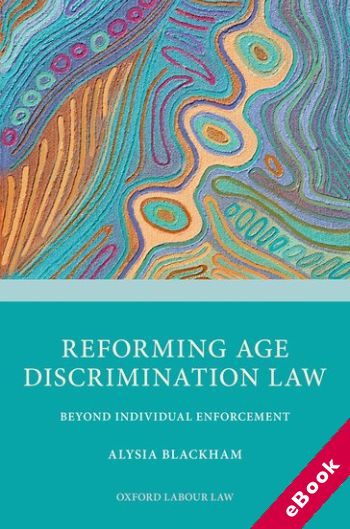
The device(s) you use to access the eBook content must be authorized with an Adobe ID before you download the product otherwise it will fail to register correctly.
For further information see https://www.wildy.com/ebook-formats
Once the order is confirmed an automated e-mail will be sent to you to allow you to download the eBook.
All eBooks are supplied firm sale and cannot be returned. If you believe there is a fault with your eBook then contact us on ebooks@wildy.com and we will help in resolving the issue. This does not affect your statutory rights.
Age is a critical issue for labour market policy. Both younger and older workers experience significant challenges at work. Despite the introduction of age discrimination laws, ageism remains prevalent.
This volume offers a roadmap for the future development of age discrimination law in common law countries, to better address workplace ageism. Drawing on theoretical, doctrinal and empirical legal scholarship, and comparative perspectives from the United Kingdom, Australia, and Canada, the book provides a socio-legal critique of existing age discrimination laws and their enforcement and proposes concrete suggestions for legal reform and change. Building on legal and interdisciplinary insights, it examines the challenges and limitations of existing legal frameworks and the individual enforcement model for addressing age discrimination in employment, mapping the stages of claiming, negotiation or alternative dispute resolution, and hearing and judgment, using mixed-method case studies of the enforcement of age discrimination law in the United Kingdom and Australia.
Reforming Age Discrimination Law puts forward a four-fold model of reform to strengthen age discrimination law, to improve the individual enforcement model, strengthen positive equality duties, bolster the roles of statutory equality agencies, and enhance collective enforcement. This work critically considers how these options might address the limits of existing laws, and the practical measures necessary to ensure their success, to move beyond the individual enforcement of age discrimination law.